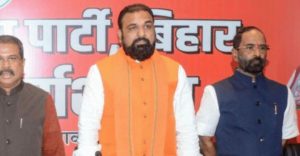
The contentious remarks by Samajwadi Party leader Abu Azmi about the Mughal emperor Aurangzeb have triggered a firestorm of debate across India. Adityanath’s response to Azmi’s comments was blunt and direct. The Uttar Pradesh Chief Minister stated, “Send him to UP,” a remark that has reverberated through the media and political circles, adding more fuel to the ongoing political debate surrounding historical interpretations and their contemporary implications.
Azmi’s statement, which praised the policies of Aurangzeb, ignited protests from several quarters, especially those who view the emperor’s rule as a symbol of oppression. Aurangzeb is a polarizing figure in Indian history—while some point to his administrative acumen, others emphasize his religious intolerance, particularly towards Hindus.
Yogi Adityanath’s response, however, should not be seen in isolation. The Chief Minister has been a vocal critic of what he sees as the appeasement politics of opposition leaders. By invoking Uttar Pradesh in his statement, Adityanath essentially underscored the cultural and political values that he believes define the state. His leadership in UP has been marked by an emphasis on Hindu pride, promoting a version of history that emphasizes the valor of Hindu kings and warriors who stood in opposition to Mughal emperors like Aurangzeb.
For Adityanath, this is not just about defending historical figures, but also about asserting a broader political narrative that rejects what he perceives as efforts to marginalize Hindu identity in Indian politics. His strong stand against Azmi’s statement comes at a time when debates over historical memory, religion, and national identity have become central to political discourse in India.
While some critics of Yogi Adityanath accuse him of playing divisive politics, his supporters argue that he is simply standing up for a version of history that aligns with the values and aspirations of many in his constituency. The incident has sparked renewed interest in how political leaders are shaping the national conversation around history and identity, particularly in a nation as diverse as India.




